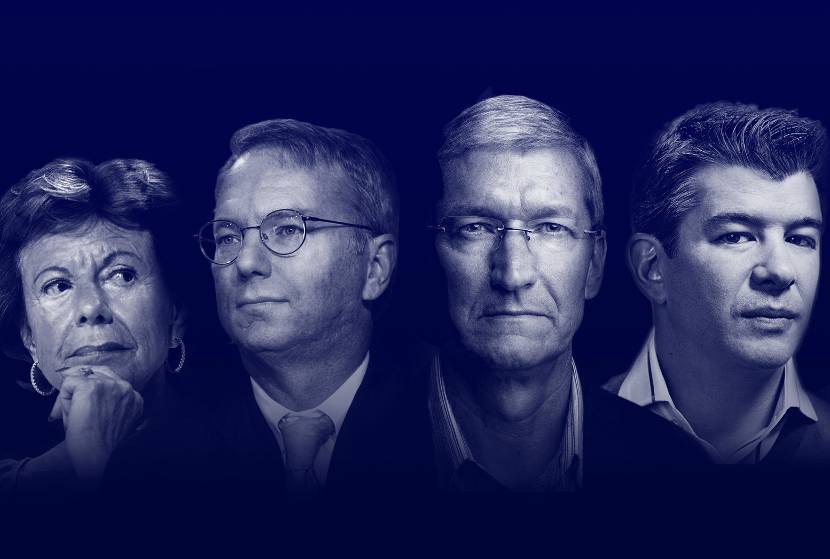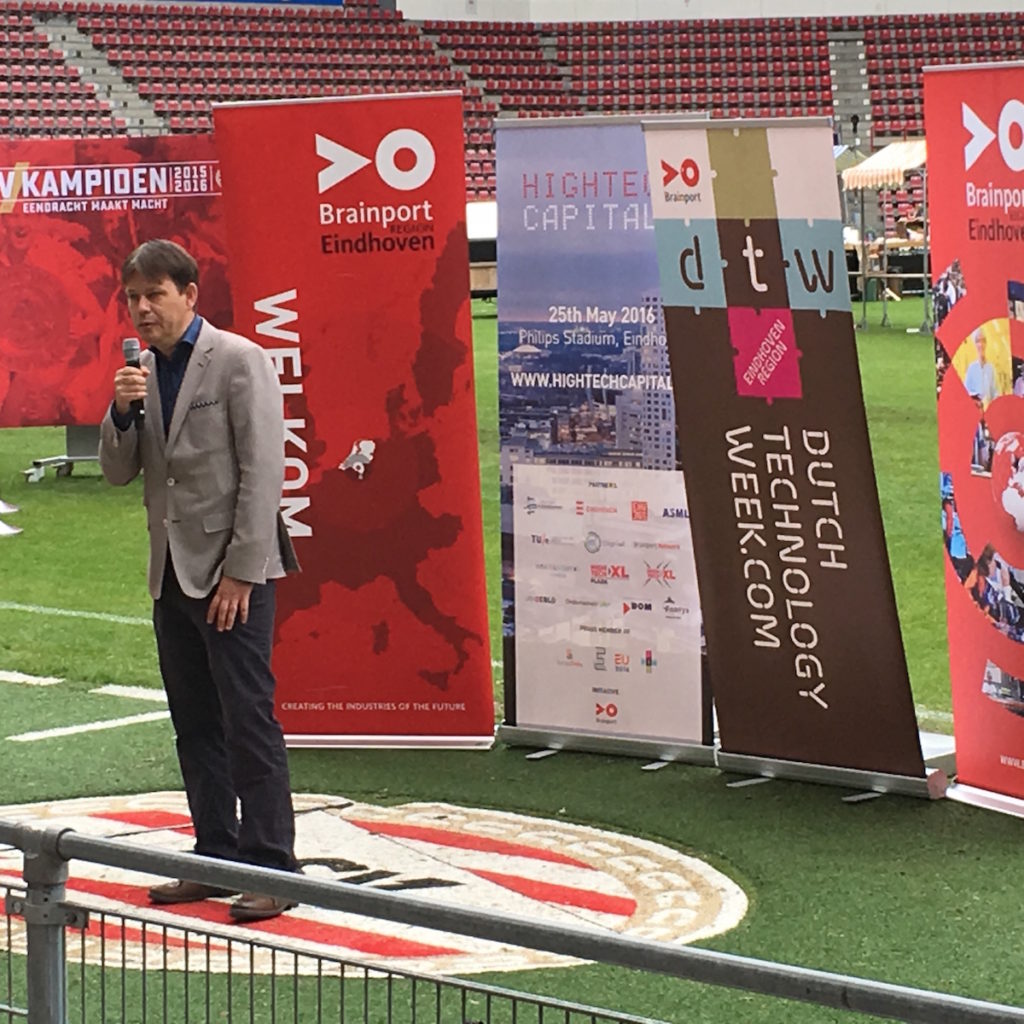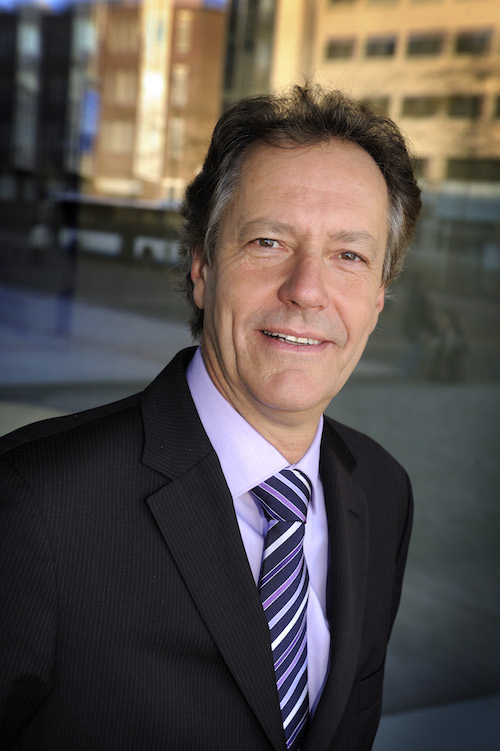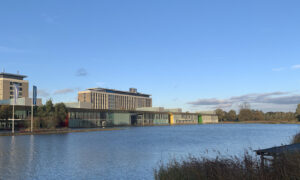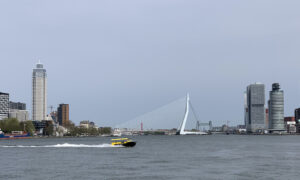The inaugural Startup Fest Europe has brought both celebration and soul-searching to Eindhoven, one of Europe’s most important high-tech innovation centers … a place where an incredible technology foundation at least hints at an unlimited future as a startup center.
Now, all they need is money.
The talent is here, said several keynote speakers. But the ecosystem still lacks early stage capital and a persistent startup mindset.
 With the tagline “High Teach Capital,” Eindhoven is one of 14 sites across the Netherlands hosting independent programs today under the Startup Fest Europe umbrella. The consistent theme among speakers at Philips Stadium here this morning was, “We’re already a high-tech center. Now we’re going to push even harder to become a startup center.”
With the tagline “High Teach Capital,” Eindhoven is one of 14 sites across the Netherlands hosting independent programs today under the Startup Fest Europe umbrella. The consistent theme among speakers at Philips Stadium here this morning was, “We’re already a high-tech center. Now we’re going to push even harder to become a startup center.”
This being Eindhoven, home to Philips Electronics, ASML, NXP and other high-tech companies, tech stars are rock stars, and one of the featured speakers at this morning session is a local startup entrepreneur with a global vision.
Peter Weijmarshausen, CEO of Shapeways, the New York City-based 3D digital manufacturing and e-commerce company he founded here in Eindhoven nine years ago, had to relocate to New York City due to a lack of early stage funding in the Netherlands.
But Shapeways has never completely abandoned Eindhoven, and now Weijmarshausen says that’s a good thing.
In the early days of Shapeways, he tried to recruit talent by asking them if they were willing to relocate to this smallish-but-sophisticated city in southern Netherlands, from London and other cities. “We couldn’t convince them to join. We couldn’t get talent.”
Now, Shapeways has both a headquarters in New York and a factory in Eindhoven. “The one thing we’re hearing more and more from colleagues is, ‘It’s incredibly cool to be in Eindhoven!’ ”
Weijmarshausen emphasized to the crowd, which included local economic-development officials, how important it is to market the city to get talent to come here: “Painting that picture is very important. The more people who come, the more success you’ll have.”
What’s different about Eindhoven compared to so many U.S. cities, and even to European cities, is that Weijmarshausen was very much preaching to the choir.
Eindhoven Mayor Rob van Gijzel, a long-time startup advocate, said Eindhoven is becoming “an epicenter of the global startup community,” built on the foundation of high-tech companies here now.
Van Gijzel was also candid in his appraisal that bureaucracy is an obstacle: “Legislation always reflects the past, never the future.” His goal is to push for policy that will give startups more “experimental space. We have to experiment. We have to find the way to the future.” That includes bolstering the ecosystem here, he added.
Van Gijzel referenced Weijmarshausen and how the Shapeways’ founder had to leave Eindhoven because the Netherlands has a “(venture) capital problem. Investors prefer real estate.” Holland needs a new type of early stage investor who wants to invest the money they make from exits into startups, he said.
In explaining the importance of capital and finding the right investors, Weijmarshausen retraced Shapeways’ startup journey from an idea integrated into Philips in 2007 into a minimally viable product spun out into an independent company by 2008.
Unable to raise sufficient capital in the Netherlands, Weijmarshausen left for New York City. “It was quite a controversial decision,” he told the crowd of about 300 policymakers, entrepreneurs and investors. But in the intervening years, Weijmarshausen added, he learned that if a startup finds a great set of initial investors, it’s much easier to attract talent and great follow-on investors.
One of the most important lessons he’s learned is that to survive and grow, companies have to raise the right amount of money at the right time. Weijmarshausen’s strategy is to raise capital every 12 months to 18 months as Shapeways gains traction with customers. With increased revenue, the valuation goes up, share dilution isn’t as much of a problem, and he isn’t focused on raising money all the time.
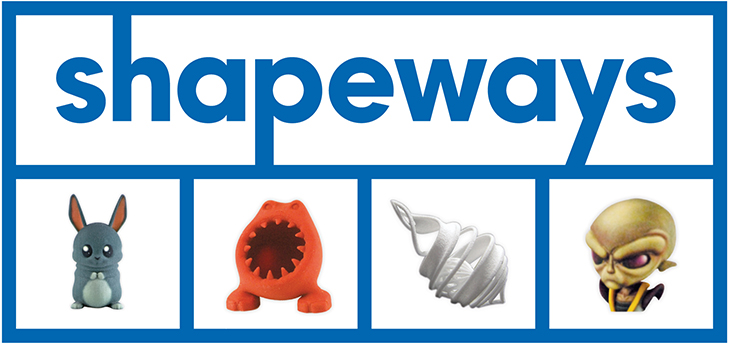 The company now has 200 employees selling to thousands of customers worldwide. Investors include some of the biggest names in the United States including Menlo Park-based Andreessen Horowitz and Union Square Ventures, Brad Burnham’s New York-based venture firm, which has about $800 million under management.
The company now has 200 employees selling to thousands of customers worldwide. Investors include some of the biggest names in the United States including Menlo Park-based Andreessen Horowitz and Union Square Ventures, Brad Burnham’s New York-based venture firm, which has about $800 million under management.
“Right now, we have no pressure about profits or exits,” Weijmarshausen said. “Our investors tell us, ‘Build, build, build. This is going to be big! Keep going!’
“It’s a luxury to be able to choose the best investors. They need to understand the stage you’re in, your market, and they need to help attract talent and follow-on investors.”
Smart investors are important because it takes time to build startups, Weijmarshausen noted, then transitioned to some most un-Dutch thinking … and to Mayor van Gijzel’s point about giving startups time.
Most startups fail, Weijmarshausen said. So in true startup centers, “people who join startups expect to lose their jobs. But there are enough other startups around so there’s somewhere to go. And that’s a complete ecosystem.”
The granular details:
Startup Fest Europe is a week-long festival running concurrently with the Netherlands’ presidency of the European Union. This is the showcase event for Europe’s effort to create a digital startup culture.
Airbnb’s Nathan Blecharczyk, Google’s Eric Schmidt, Apple CEO Tim Cook and Uber co-founder and CEO Travis Kalanick (who’s also CEO of Twitter) are just a few of the Silicon Valley A-listers in the Netherlands today participating.
In Eindhoven, the event today is also part of Dutch Tech Week. It included presentations by a number of top executives from companies such as Royal Dutch Shell, Deloitte and Ziggo, as well as pitching panels and networking. Total attendance was an estimatd 800 people.
Co-CEO of Dispatches Europe. A former military reporter, I'm a serial expat who has lived in France, Turkey, Germany and the Netherlands.


